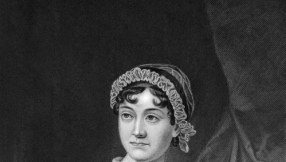
Ask Christians who advocate for gender equality what label they give themselves and you're likely to get a whole spectrum of answers. Not everyone is comfortable identifying as a feminist; nor is everyone familiar with the term 'egalitarian', the theological position that works from the basis that men and women were created to function in equal, non-hierarchical roles in the church and family.
Some see the terms 'Christian feminist' and 'egalitarian' as interchangeable; others want to distance themselves from feminism altogether. In the last week, one well-known Christian leader and advocate for women has done just that, claiming that supporting feminism – and indeed any ideology focusing on 'rights' and 'recognition' – is incompatible with becoming more like Jesus. It is perhaps easy for someone who has never had to fight for their rights to say this, and the statement shows a fundamental misunderstanding of the fact that most people working towards liberation for women don't do so out of selfish motivations.
For some evangelical Christians, particularly in the USA, any association with what are viewed as secular and liberal political ideologies is problematic. Hence the pressure for Christians of influence to distance themselves from secular feminist issues, and even concerns from within the Christian community that don't fit a narrow agenda and might cause discomfort to the wider church establishment.
For me, egalitarianism is just one 'branch' of feminism as a whole. To work towards egalitarian goals is important, but a focus on better inclusion of women in existing Christian culture can feel limited and insufficient for those who exist on the margins of this culture in the first place.
There may have been an upsurge in wider awareness about Christian feminism in recent years, partly motivated by the accessibility of online communities, but Christians have been working towards egalitarian and feminist goals for much longer. It's easy to get excited about what appears to be a new movement – and why not? The work being done by Christian women right now is hugely exciting and transforming many lives. But as Christian advocates for gender justice, we must also be careful to look beyond the bubble of 21st century Christian culture and ask ourselves questions about our work that may prove a little uncomfortable.
Are we looking beyond the role of women in the church, home and family?
These are key issues for so many Christian women and it's natural to want to see things change. From churches where women are treated badly, to marriages where rigid roles are justified by Scripture, and a Christian culture where single women are sidelined. But there is also the danger that our activism becomes focused on these things alone. We can expend so much energy on battling with conservatives over whose interpretation of Scripture is correct; on who gets to preach and who gets to submit to whom in marriage, while wider societal concerns and the perspectives of more marginalised people get crowded out.
As we look towards full inclusion in the church, women from every religion and none look towards full equality in society and lives free from patriarchy. Egalitarianism alone cannot achieve this.
What I'm not saying here is that everyone should be invested in and campaigning on every issue facing women, or that those working on equality in the church aren't doing enough. We all have particular causes that move us or that feel like a 'calling'. And yet as we invest time and effort in those issues that really speak to us, we need to pay attention to the work of others, too, without dismissing them as irrelevant or less important, or fearing the consequences of aligning ourselves with secular groups. The voices of women of faith are sorely needed in the wider feminist movement.
Are we fighting for liberation, or working for changes that still uphold the status quo?
Many churches and Christian groups are not the most diverse places to be. And as is the case in all activist movements, it's easy for those with the most privilege to become the ones who visibly gain the most from efforts to empower women. Christian culture buys into this in a big way: it's much easier to become 'known' as a speaker or advocate for women if you're in leadership at a megachurch, have written popular books, are a member of a high profile ministry family, or if you're essentially 'acceptable' – white, middle class, married, conventionally attractive.
This definitely isn't a condemnation of the work of such women. The ministries of 'big names' in egalitarianism have had a huge impact on women and changed many lives. But a sphere of influence in which platform and book deals and conferences matter – and where this hinges on toeing the line on particular issues and adhering to certain expectations about womanhood – is one where the voices and work of more marginalised women are currently not always included and sometimes actively disapproved of for being too different, too 'divisive'.
For years, Christian women from a diverse range of backgrounds have worked for liberation and equality. And yet it's telling whose voices are amplified when Christian culture talks about equality, when it talks about the 'new' focus on feminism that has taken hold in evangelical circles. Having a high profile as an egalitarian is no bad thing, but we can all do better when it comes to considering whether or not we're listening to and celebrating the work of people from backgrounds very different to our own; whether we're looking for true change, or just better inclusion for 'people like us' in the current system.
Are we misdirecting our energies?
I've already mentioned the amount of energy expended by egalitarians on doing battle with conservatives over the classic 'clobber verses' – the ideas about what women 'are permitted to do' and when. No belief system comes without its endless, never-resolved debates on what's 'right', but I've become increasingly convinced that our energies are better focused on making a difference for women where we are, rather than feeling we constantly have to justify what we're doing.
The same is true for a focus on attempting to 'win over' conservatives by peddling a safer, more palatable version of equality that upsets fewer people, or one that doesn't take hard stances on controversial issues. As we try to bring those who disagree with us over to 'our side', we could do well to remember that a lot of the time, this is going to be futile – and that we can work for change without the backing of the powerful. Grassroots change achieves so much and it should be central in a belief system that has resistance against traditional power structures at its core.

















